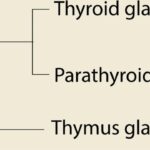Heart palpitations are common and affect many people at some point in their lives. Chest flutters, an elevated or racing heart rate are among the possible causes. Usually, they go away on their own without intervention. However, this raises the question: are palpitations dangerous? Heart palpitations can indicate health issues, so this post will discuss their causes and treatment.
What Are Heart palpitations?
Feeling the effects of one’s heartbeat is the simplest definition of heart palpitation. Normally you will not be aware of the resting heartbeat, but with a palpitation, the conscious rhythm of heart pounding becomes obvious. It may feel like your heart is missing a beat. A person may have these sensations in their neck, chest, or throat.
Although palpitations can be upsetting, they are not usually not dangerous. They are usually owing to petty factors like anxiety or too much coffee. On the other hand, it also shows signs of cardiac abnormalities, hence the need to recognize when to be concerned about heart palpitations.
What are the factors that trigger heart palpitations?
When studying the symptoms of heart palpitations, many instances can be ascribed to multiple distinct sources. A few of the more common ones include:
Stress and Anxiety
Emotional stress such as panic attacks or anxiety disorders is typically a triggering element behind heart palpitations. In a fight or flight response, the body produces a hormone called adrenaline, which frequently elevates the heart rate.
Stimulants
Substances such as coffee, nicotine, and some drugs (for instance, asthma inhalers or some cold treatments) can all function as stimulants to the heart, causing it to race. Often, energy drinks and alcohol are also to blame.
Hormonal Changes
Hormonal changes that are seen during pregnancy, owing to menstruation, or throughout menopause can cause a woman to feel as if her heart is pounding.
Exercise or physical exercise: Strenuous physical exercise can trigger heart palpitations, particularly when an individual is dehydrated or weary.
Read also: Heart Attack vs Cardiac Arrest: Understanding the Differences and Why It Matters
Medical problems
Other medical issues that include hyperthyroidism, the violence of anemia, low blood levels of glucose, and fever can also stimulate the chest to experience a heart palpitation. In uncommon extremes, this condition can also be linked with some kinds of heart disease that cause palpitations.
Are Palpitations Dangerous?
Fortunately, in most individuals, heart palpitations are not related to life-threatening illnesses. The majority of them are benign and are induced by non-cardiac components such as anxiety, food consumption, or even lack of water. Nonetheless, there are other instances when heart palpitation may be suggestive of a greater underlying condition.
When to Worry About Palpitations:
Arrhythmias: There are several sorts of cardiac rhythm irregularities that can induce ‘palpitations’, and such disorders can potentially be hazardous. These can include atrial fibrillation, ventricular tachycardia, bradycardia, etc. If you sense an abnormality in your heart or it beats quickly for a long duration, you have to consult a doctor.
Underlying Heart Disease
Patients suffering from any sort of existing heart disorders, including coronary artery disease and heart failure. In case you have a history of heart disease, never disregard palpitations with accompanying heavy chest sensation, dizziness, or loss of consciousness.
Severe Symptoms
Palpitations that coincide with chest discomfort, problems breathing, feeling faint, or fainting might be indicators of a significant condition and need to be addressed immediately.
When is it necessary to consult the doctor?
If the heart may skip periodically with a sense of warmth and gently diminishes, then there is no reason why one should get frightened. On the other hand, when these episodes grow stronger, longer in duration, or occur with other indicators, a doctor should be seen.
Heart Palpitations That Require Immediate Medical Attention:
- Palpitations extend from minutes to hours
- Palpitations with accompanying chest discomfort, dyspnea, or dizziness.
- Loss of consciousness or changed mental state during a palpitation episode.
- Exacerbation, or new development, of palpitations in someone with a previous history of heart illness.
Diagnosing Heart Palpitations
When you consult a physician regarding heart palpitations, he or she will most likely ask for more testing to study further the underlying problem. These tests can include:
1. Electrocardiogram (ECG): An ECG is a test that captures the electrical activity of the heart to discover whether there are any aberrant rhythm patterns.
2. Holter Monitor: This portable ECG gadget is used for evaluating heart rate for a minimum of 24 hours or longer for abnormal cardiac activity.
3. Echocardiogram: An echocardiogram is an ultrasound of one’s heart and lets your doctor examine any structural flaws or concerns with heart valves.
4. Stress Test: A stress test examines the reaction of the heart to physical exertion.
5. Blood Tests: In some situations, blood tests may also be carried out in order to examine the levels of thyroid hormones, electrolytes in the body, or other underlying disorders that may contribute to palpitation of the heart.
How to Manage Heart Palpitations
Fortunately, 90% of the cases of heart palpitations may simply be addressed by making certain lifestyle adjustments. For instance, when tension, worry, or consumption of certain stimulants is connected with the incidence of palpitation, some modest changes might be quite useful.
How to Cope with Palpitations with Some Lifestyle Changes:
1. Reduce Stimulants: When cut down on the intake of coffee, nicotine, and alcohol, the incidence of palpitations will be reduced. In case you are allergic to caffeinated energy drinks, then keep away from them, as they will produce palpitations too.
Manage tension
It is beneficial to add some deep breathing exercises, yoga, or meditation, since these activities will reduce your palpitations and tension.
Stay Hydrated: Make sure you are getting enough water since dehydration is one of the reasons for heart palpitations.
Frequent Exercise
Engaging in frequent moderate workouts might be beneficial for toning the cardiac muscles and therefore minimizing the possibility of palpitations. However, one should be careful not to exacerbate the symptoms by exercising too hard, especially if one experiences vasculogenic dyspepsia spells during exercise.
Balanced Diet
Regular consumption of nutritious food alternatives, which include potassium, magnesium, and other key minerals, is crucial for the correct functioning of the heart and minimizing the risk of heart palpitations.
When medical treatment is necessary
There are situations when heart palpitations may necessitate certain medical measures. Treatment possibilities for palpitations linked with cardiac disorders might include beta blockers or antiarrhythmics, as suggested by the healthcare practitioner.
More sophisticated examples would entail medical treatments interfering, such as in the case of catheter ablation, where they remove the normal tissue within the heart that produces aberrant cardiac rhythms, and at a more extreme instillation of pacemaker devices into the heart.
Preventing Heart Palpitations
Though it might not be feasible to remove every risk factor related to heart palpitations, certain efforts can be made to lessen their frequency. Eliminate or restrict the use of any substances that may have a stimulating effect; attempt to minimize the intake of coffee, nicotine, and alcohol as much as possible.
Stress management: Make use of deep breathing or meditation to avoid a circumstance that may lead to high levels of anxiety and tension.
Physical exercise: Engage in frequent and moderately intensive physical activity in order to reduce the weakening of the heart.
Manage drugs: pay attention to prescription medications and over-the-counter tablets, and avoid those that might induce heart palpitations.
Heart palpitations and mental health.
Psychological functioning can substantially affect an individual’s experience of heart palpitations, especially when there are stress and anxiety components. For example, even without physical exertion, panic episodes can elevate a person’s heart rate, which may be scary at times.
How to Manage Anxiety-Related Palpitations:
1. Therapy: Cognitive-behavioral therapy (CBT) is beneficial in alleviating anxiety and decreasing heart racing.
2. Relaxation Approaches: Breathing patterns, muscular relaxation methods, and awareness can be applied to ease the nervous system.
3. Drugs: Anti-anxiety drugs can occasionally be beneficial to deal with anxiety-induced increased heart rates.
Long-Term Effects of Heart Palpitations
The long-term prognosis is also represented in the type of the heart palpitations and the specific demographic of people in whom they occur. For the most part, palpitations are infrequent and harmless. They can be lowered greatly by lifestyle improvements and management.
On the other hand, when the reason for heart palpitations is a heart condition, one must heed the physician’s advice and take care of heart troubles regularly.
Frequently Asked Questions (FAQs)
1. Are heart palpitations an indicator of a heart attack?
No, heart palpitations are typically not an indication of a heart attack. However, if palpitations are accompanied by chest discomfort, shortness of breath, or dizziness, it’s crucial to seek medical assistance immediately, as these might be indicators of a heart attack.
2. Can dehydration induce heart palpitations?
Yes, dehydration may induce heart palpitations. When your body is dehydrated, the balance of electrolytes can be upset, which affects your heart’s electrical system and may trigger palpitations.
3. Should I avoid exercising if I have heart palpitations?
Not necessarily. Moderate exercise is typically excellent for heart health and can help minimize palpitations. However, if you feel palpitations while active, it’s crucial to visit a doctor before continuing.
4. Can worry create palpitations?
Yes, anxiety and panic episodes are typical causes of heart palpitations. Managing your anxiety with relaxation techniques or therapy can help lessen the frequency of palpitations.
5. How long do heart palpitations last?
Heart palpitations might persist for a few seconds to many minutes. If they last for hours or are accompanied by serious symptoms, it’s crucial to seek medical treatment.



